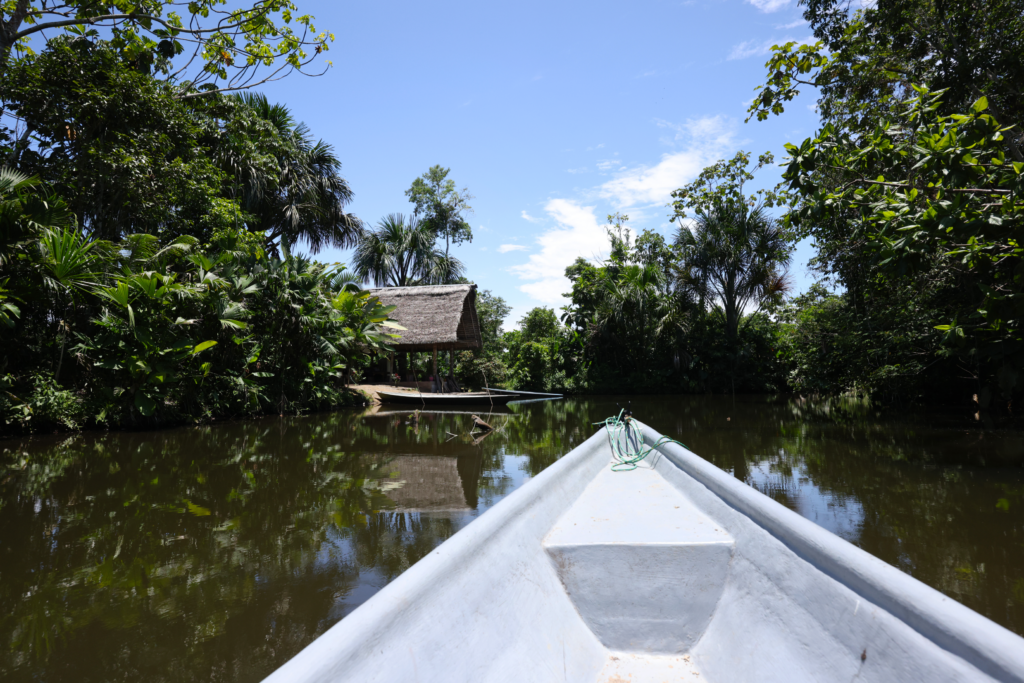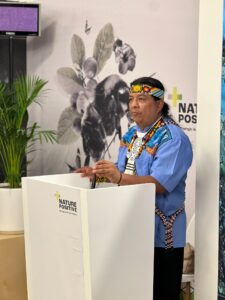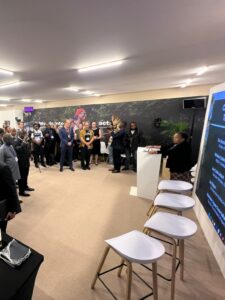This blog post is authored by Angela Churie Kallhauge, Executive Vice President, Impact at Environmental Defense Fund (EDF), with contribution from Katie Goslee, Director of Nature-Based Solutions, Winrock International; Stephanie Wang, Associate Director, Wildlife Conservation Society; Jason Funk, REDD+ Strategy Director at Conservation International; and Daniela Rey Christen, Director, Climate Law and Policy
In the fight against the climate crisis, high-integrity jurisdictional REDD+ is intended to be transformational, giving forest communities and governments the ability to tap into the voluntary carbon market to access climate finance needed to ensure that large areas of tropical forests remain intact.
Jurisdictional REDD+ can deliver results, to the benefit of people, nature, and climate. Research shows that larger scale programs to pay for emission reductions from forest conservation – the scale of a whole forest region, state, or nation – are better able to ensure additionality and prevent leakage than are smaller-scale carbon programs. And larger scale programs do so for a longer period of time.
Ensuring high-integrity jurisdictional REDD+ programs are fully functioning has therefore become a key priority for many actors working to reduce deforestation and forest degradation, including businesses, governments, and Indigenous Peoples and local communities.
One problem is that forest nations looking to establish jurisdictional REDD+ programs may not currently have the technical capacity needed to deliver high-integrity carbon credits. This is holding back their access to carbon markets, even as demand for high-integrity jurisdictional tropical forest credits seems poised to accelerate.
The task at hand is to support these jurisdictions in fully unlocking the promise and potential of high-integrity carbon markets at the rapid pace and large scale needed to address the climate crisis. We don’t have much time. If we don’t end and reverse tropical deforestation and degradation by 2030 – only six years from now – the effects could be irreversible.
Overcoming barriers
The good news is that the success of jurisdictional REDD+ at the scale needed is within reach. But it will require collaboration – key partners, forest nations and Indigenous peoples and local communities tightly coordinating priorities, expertise, and resources as never before. The climate community will need to share knowledge, resources, and technical capacity to help forest jurisdictions overcome the barriers holding back jurisdictional REDD+.
The recently launched Jurisdictional REDD+ Technical Assistance Partnership (JTAP) seeks to address these barriers through technical assistance. The Partnership, founded by the Environmental Defense Fund, Conservation International, Climate Law and Policy, Wildlife Conservation Society, and Winrock International’s Ecosystem Services Unit, will leverage the technical expertise and resources from these founders and a growing network of local and international partners. JTAP will aim to support forest nations to overcome critical issues that can undermine jurisdictional REDD+ efforts – such as navigating audits, credit issuance, and financial transactions. It will also support forest nations, indigenous peoples and local communities to successfully implement emissions reductions activities that jurisdictional REDD+ efforts ultimately hinge on.
- The Honorable Samuel A. Jinapor, Minister for Lands and Natural Resources, Ghana, speaking at the launch of the Jurisdictional REDD+ Technical Assistance Partnership at COP28, Dec. 8, 2023
- Juan Carlos Jintiach of the Global Alliance of Territorial Communities, speaks at the launch of the Jurisdictional Technical Assistance Partnership at COP28, Dec. 8, 2023
- Angela Churie Kallhauge, EDF Executive Vice President for Impact, speaks at the launch of the Jurisdictional REDD+ Technical Assistance Partnership at COP28, on Dec. 8, 2023
Collaboration is at the heart of this partnership, which is why JTAP is actively working to bring in new partners and align its efforts with those of other initiatives in this space.
JTAP is focused on building local capacities, supporting local institutions and strengthening their capacity to sustain jurisdictional REDD+ programs over the long term. Moreover, JTAP members recognize that high-integrity jurisdictional REDD+ efforts must foster collaborative relationships with indigenous peoples and local communities who steward forests and other natural landscapes. JTAP aims to support successful implementation of J-REDD+ programs that continue to raise the bar ever further on ensuring meaningful inclusion and agency for these groups.
Sharing knowledge, outcomes, and learnings across the broader jurisdictional REDD+ community is also key. What is learned through efforts to provide technical assistance in one jurisdiction could be the key to success in another. JTAP will support this type of sharing through a global knowledge platform, including efforts to facilitate direct exchanges between countries in various stages of progress.
The efforts of JTAP build on the work its founders are already doing, in deep partnerships with a growing list of jurisdictions, IP and LCs’ and local organizations. Importantly, JTAP’s work will complement other technical assistance efforts led by UN-REDD+, the Forest Carbon Partnership Facility, the ONE-SL Project by the U.S. Department of State, the new UK Technical Assistance Programme for LEAF or the Governors’ Climate and Forests Task Force.
Building on progress
This work will build on progress made to bring jurisdictional credits to market. Last month at COP 28, we witnessed Ghana and Costa Rica sign landmark emissions reduction purchase agreements worth more than $60 million to supply high-integrity jurisdictional REDD+ credits for purchase by members of the LEAF Coalition. These agreements follow Guyana’s groundbreaking transaction a year ago of the first jurisdictional REDD+ credits issued under the ART-TREES standard. And what’s more, a growing list of jurisdictions are actively engaging with ART-TREES to bring even more high-integrity forest credits online in 2024.
These are exciting milestones, and represent vital transactions for tropical forest communities and governments urgently seeking funding to conserve, restore, and sustainably manage large tracts of forests in the face of intensifying global deforestation and forest degradation pressures. However, there is more work to be done. The needs are vast, and will only grow as more countries step forward to engage in jurisdictional REDD+. But with all J-REDD+ partners aligning their efforts – with all hands on deck, working together – imagine what we can accomplish.
For more on the Jurisdictional REDD+ Technical Assistance Partnership, visit jtapartnership.org.













